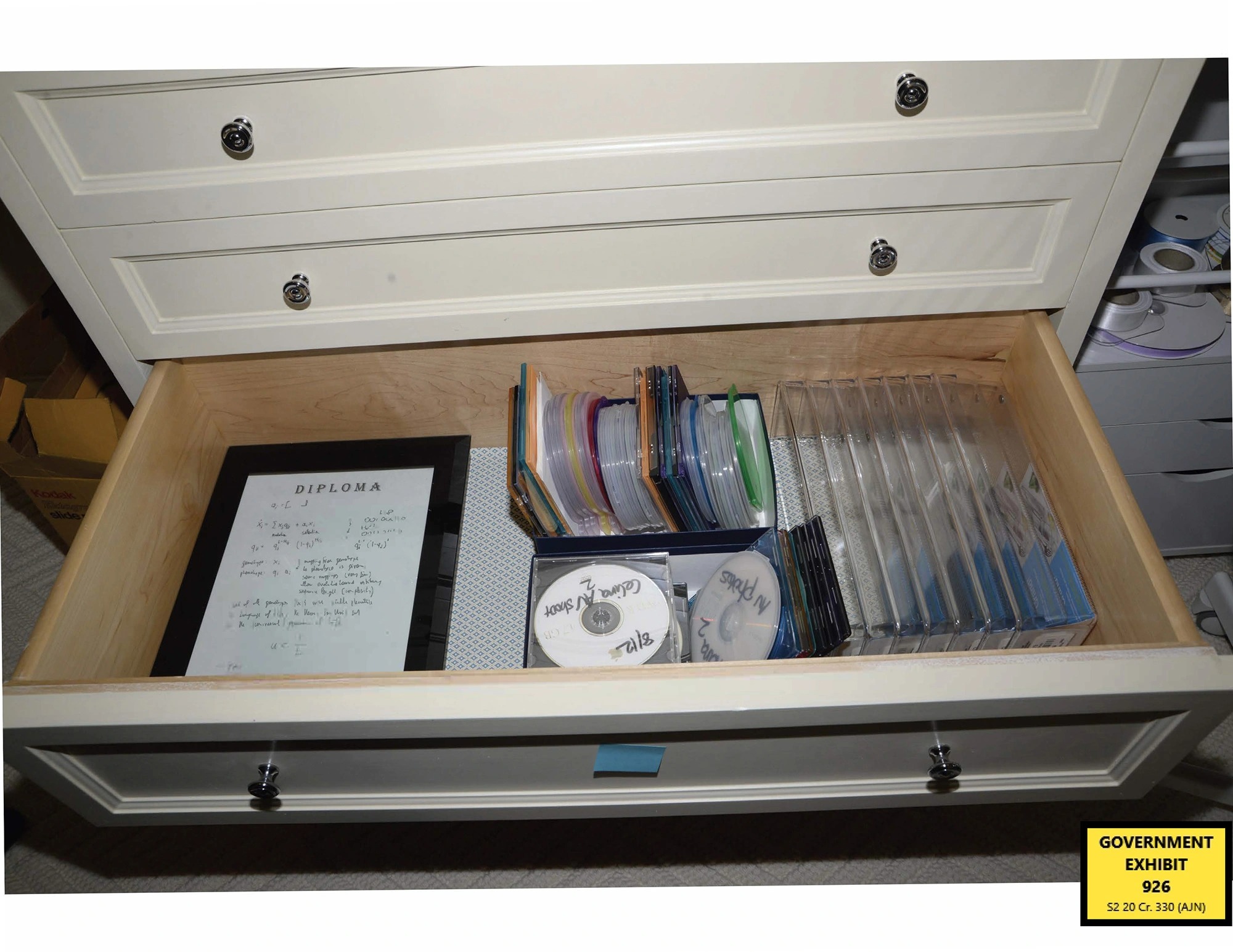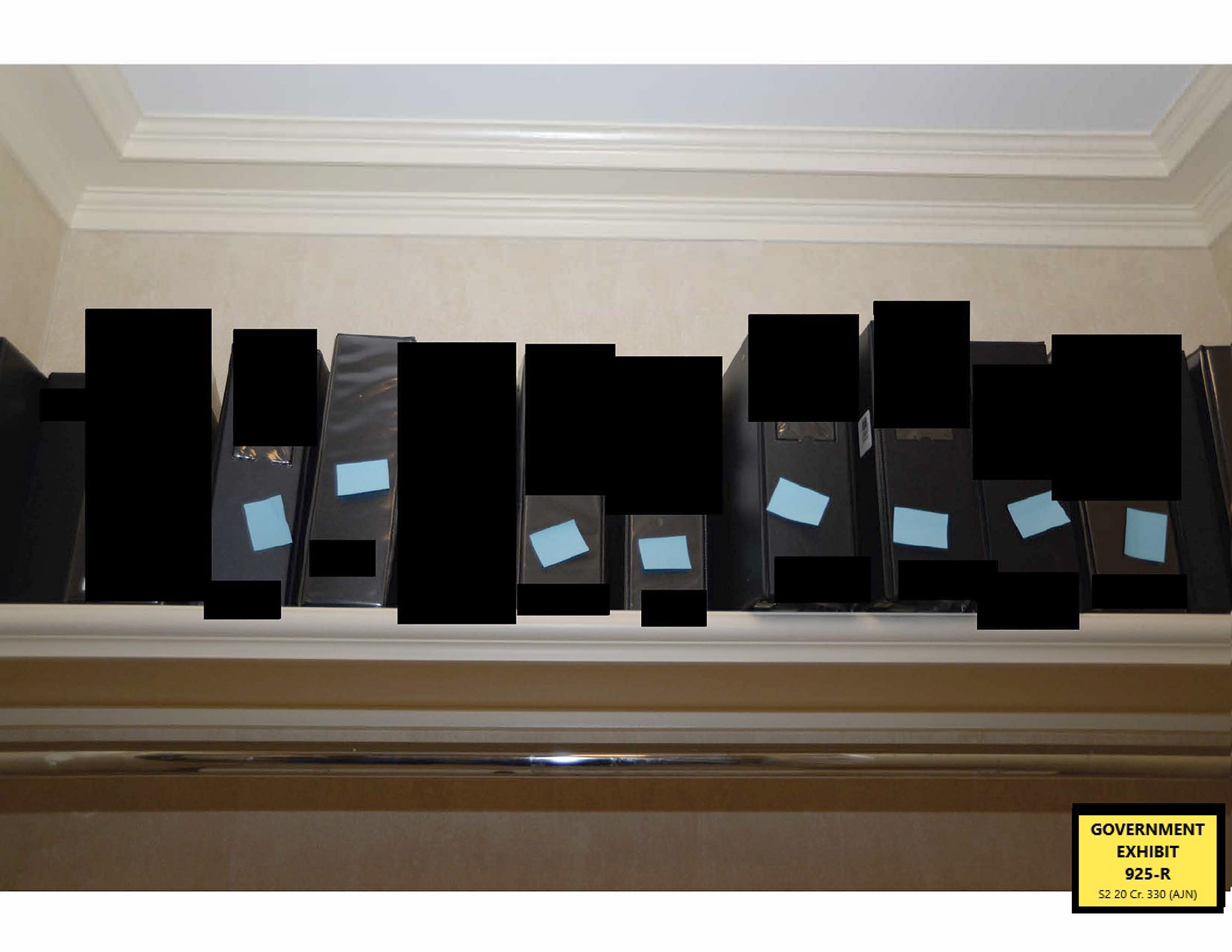Last Updated on July 19, 2025 by ThePublic
On July 6, 2019, federal agents from the FBI and the U.S. Attorney’s Office for the Southern District of New York raided Jeffrey Epstein’s Manhattan townhouse at 9 East 71st Street. Inside a locked safe, they uncovered a chilling discovery: stacks of compact discs, each meticulously labeled in handwritten marker with cryptic, disturbing titles like “Young [Name] + [Name].” Alongside these were piles of cash, loose diamonds, and a fraudulent Austrian passport listing Epstein’s photo under a false identity, with a Saudi Arabia address. This wasn’t the haphazard stash of a reckless criminal. This was the curated archive of a predator with a purpose, one that reeks of blackmail.
These weren’t innocuous home videos. The labels suggested a catalog of exploitation, possibly involving minors and high-profile figures, stored with chilling precision. Court filings from the Southern District of New York confirmed the existence of these discs, and initial media reports, including those from The New York Times and The Washington Post in July 2019, briefly spotlighted the find. Yet, after Epstein’s death on August 10, 2019, officially ruled a suicide under controversial circumstances, the story of the discs vanished. No further details emerged. No public disclosure of their contents. No indication they were ever analyzed or used in subsequent prosecutions, including the high-profile trial of Ghislaine Maxwell in 2021.
This silence isn’t just deafening, it’s damning. What was on those discs? Where are they now? And why has the most explosive evidence in one of the most notorious criminal cases in modern history been swept under the rug?

The Smoking Gun Buried in Plain Sight
The discovery of the discs was no conspiracy theory. It was documented in official court records. On July 8, 2019, prosecutors referenced the safe’s contents in a bail hearing for Epstein, noting the labeled CDs alongside other items. Yet, after this initial acknowledgment, the discs disappeared from legal and public discourse. No forensic details were released, no mention of whether the discs contained video, audio, or still images, or whether they were encrypted. No updates on their chain of custody. No explanation for why they were not introduced as evidence in Maxwell’s trial, despite their potential to corroborate victim testimonies with irrefutable proof.
The lack of transparency is staggering. Federal prosecutors have a duty to pursue justice, particularly in cases involving serial sexual abuse of minors. If the discs contained evidence of crimes, especially involving powerful individuals, why were they sidelined? The absence of answers fuels suspicion that the discs weren’t just ignored but deliberately suppressed.

A Blackmail Empire, Not a Lone Predator
Epstein’s operation was never just about personal gratification. Testimonies from survivors, including Maria Farmer and Virginia Giuffre, paint a picture of a sophisticated surveillance network. Farmer, one of Epstein’s earliest known victims, told CBS News in 2020 that his Manhattan townhouse and other properties were rigged with hidden cameras in bedrooms, bathrooms, and guest areas. She alleged that Epstein and Maxwell used these recordings to monitor and potentially compromise everyone who crossed their threshold—whether vulnerable teenagers or influential elites.
This wasn’t speculation. In a 2019 affidavit, Farmer recounted how Epstein showed her a “media room” in his Manhattan home filled with screens displaying live feeds from hidden cameras. Another employee, Juan Alessi, Epstein’s former house manager in Palm Beach, testified in a 2009 deposition that Epstein’s properties were wired with extensive surveillance systems. These accounts align with the physical evidence: the labeled CDs suggest a deliberate effort to catalog compromising material, potentially for leverage or extortion.
Epstein’s connections spanned the pinnacle of global power: former presidents Bill Clinton and Donald Trump, Britain’s Prince Andrew, Microsoft co-founder Bill Gates, attorney Alan Dershowitz, former Israeli Prime Minister Ehud Barak, billionaire Leslie Wexner, and financier Leon Black, among others. Flight logs from Epstein’s private jet, the so-called “Lolita Express,” and visitor records from his properties confirm that many of these figures visited his homes or traveled with him multiple times. While association doesn’t prove wrongdoing, the breadth of Epstein’s network, combined with the surveillance allegations and the mysterious discs, suggests a system designed to collect compromising material on the world’s most powerful people.
If these discs contain footage of criminal acts, particularly involving minors, they could expose not just Epstein’s crimes but a broader web of complicity. Was this his insurance policy? A trove of leverage to shield himself from prosecution? The fact that Epstein evaded serious consequences for decades, despite earlier investigations in Florida in 2005–2008, lends credence to the theory that he held material too dangerous for authorities to ignore.
The Maxwell Trial: A Glaring Omission
Ghislaine Maxwell’s 2021 trial was a pivotal moment to bring Epstein’s crimes into the open. Yet, the prosecution’s case relied heavily on victim testimonies, some dating back decades, and limited physical evidence like photographs and flight logs. The compact discs, which could have provided direct, contemporaneous proof of abuse, were conspicuously absent. Why?
Legal experts have speculated on possible reasons. The discs might have been deemed inadmissible due to chain-of-custody issues or encryption that rendered them inaccessible. Alternatively, their contents might have been too inflammatory, implicating individuals beyond Maxwell or Epstein. But these explanations strain credulity. The FBI has the technical expertise to crack encrypted media, and evidence of crimes against minors would typically outweigh procedural concerns in a case of this magnitude.
A more troubling possibility emerges: Were prosecutors instructed to avoid the discs? The Southern District of New York, which oversaw both Epstein’s and Maxwell’s cases, operates under the Department of Justice, an institution not immune to political pressure. The DOJ’s leadership under multiple administrations—Trump’s in 2019 and Biden’s in 2021, has faced scrutiny for its handling of high-profile cases. The fact that no other major figures linked to Epstein have been charged, despite extensive documentation of their associations, raises questions about selective prosecution.
Who Holds the Discs Now?
The fate of the discs remains one of the case’s greatest mysteries. Are they locked in an FBI evidence room? Were they destroyed to protect powerful individuals? Or worse, are they being used as leverage in ways the public will never know? The lack of transparency from federal authorities fuels speculation. In 2020, then-Attorney General William Barr publicly declared Epstein’s death a suicide and dismissed concerns about foul play, yet offered no clarity on the status of key evidence like the discs. Subsequent DOJ leadership under Merrick Garland has been equally reticent.
The Epstein case spans multiple administrations, yet the outcome remains consistent: no accountability for anyone beyond Maxwell, who was sentenced to 20 years in 2022. The names in Epstein’s orbit—Clinton, Trump, Gates, Prince Andrew, and others, have faced no charges related to his activities, despite allegations and circumstantial evidence tying some to his properties during periods when abuse occurred. This pattern of inaction suggests a system more concerned with protecting its own than pursuing justice.
What’s in evidence and where it is now?
| Type of Evidence | Location in Evidence Logs | Where It Currently Is |
|---|---|---|
| Digital devices (computers, USBs, CD drives—300+ GB) | DOJ/FBI catalogs Department of Justice104.5 WOKV | With FBI/DOJ, sealed; not publicly released. |
| Physical items (massage tables, cameras, passports, logs) | DOJ/FBI lists Department of Justice104.5 WOKV | Kept by authorities for ongoing investigations. |
| Locational/visitor data (boat logs, flight logs) | DOJ/FBI and civil filings Department of Justice104.5 WOKV | Maintained by DOJ/FBI; not published. |
| Civil suits testimonies and state filings | Civil filings, New Mexico records New Mexico State LandsKOAT | Publicly available in court records. |
A Systemic Failure of Justice
The Epstein case isn’t just about one man’s crimes. It’s about a system that enabled a serial predator to operate in plain sight for decades, shielded by wealth, connections, and possibly blackmail. The compact discs, if they contain what victims and evidence suggest, could be the key to unraveling this network. Their absence from public scrutiny points to a deliberate effort to obscure the truth.
Consider the broader context: Epstein’s 2008 plea deal in Florida, orchestrated by then-U.S. Attorney Alex Acosta, allowed him to serve just 13 months in a county jail with work release, despite evidence of abuse involving dozens of minors. Acosta later claimed he was told Epstein “belonged to intelligence” and to “leave it alone,” a statement he made during a 2019 interview with the Trump transition team, as reported by The Daily Beast. Whether true or not, this claim underscores the perception that Epstein operated under a protective umbrella, one that may still be in place.
The public deserves answers. What was on those discs? Why were they excluded from Maxwell’s trial? Who has access to them now? And most critically, who are they protecting? The silence surrounding this evidence isn’t just a failure of justice, it’s a betrayal of every victim who survived Epstein’s abuse and every citizen who believes in accountability.
Demand the Truth
The Epstein case exposes a rot at the heart of power. If a network of the world’s most influential people could be implicated in a pedophile ring, only for the evidence to be buried, what does that say about our institutions? The compact discs are not a footnote, they are the smoking gun of a scandal that refuses to be resolved.
It’s time to demand transparency:
- Release the contents of the discs. If they contain evidence of crimes, they must be analyzed and prosecuted, no matter who is implicated.
- Account for their whereabouts. The public has a right to know whether this evidence still exists and who controls it.
- Investigate the cover-up. The failure to pursue this evidence suggests complicity at the highest levels. Congress or an independent commission must investigate.
Until these questions are answered, the Epstein case will remain a wound on the conscience of justice, one that indicts not just a predator, but the system that let him thrive. The truth is out there, locked away on those discs. It’s time to break the silence.

